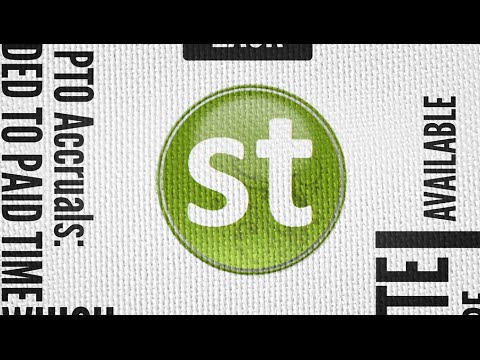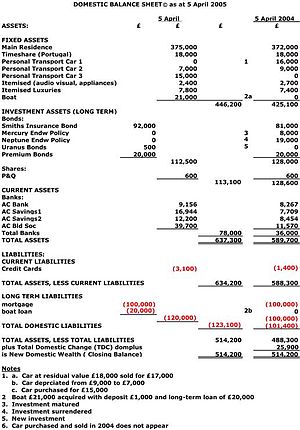How Annual Leave and Holiday Pay Work – Welcome to FlexiTime Support Centre
You Can Negotiate Paid Vacation Days
The U.S. does guarantee unpaid leave for serious illnesses through the Family and Medical Leave Act (FMLA). This law requires employers with 50 workers working within a 75-mile radius to comply and, within those businesses, covers employees who have worked for their employer for at least 12 months prior to taking the leave. The bill as proposed, would apply to employers with 15 or more employees, for employees as defined in the Fair Labor Standards Act.
Accrued Expenses vs. Prepaid Expenses

The Healthy Families, Healthy Workplaces Act would allow workers to earn one hour of paid sick time for every 40 hours worked, capped at 52 hours (or 6.5 days) per year. Businesses with fewer than 10 employees would be required to offer workers one hour of paid sick time for every 80 hours worked, capped at 26 hours (or 3.25 days) per year. Workers may use paid sick days to recover from their own illness, to care for a sick family member, or to recover from or seek services related to incidents of domestic violence. Workers could use the paid sick days to recover from illness, to care for a sick family member, or to seek assistance related to domestic violence.However, the research also found that over 28 percent of employees in the “bottom wage quartile” faced layoffs or total hours reduced as a result of the paid sick leave mandate. In fact, it’s only in the states that have laws regarding paid sick leave that employees are guaranteed paid time off when they are sick. Employers generally aren’t required to provide benefits such as vacation time or paid sick time. The only exception to this is Executive Order that mandates paid sick leave for employees who work on federal contracts. For mathematical ease, let’s assume that your company provides both vacation time and paid sick leave, and that you want to combine the two to make it easier for your payroll and benefits clerks.Employees of smaller businesses would be guaranteed a minimum of five paid sick days annually. In March 2008, the Washington, D.C. Council voted unanimously to pass legislation guaranteeing workers paid sick time. This paid time off can be used to recover from illnesses, care for sick family members, seek routine or preventative medical care, or obtain assistance related to domestic violence or sexual assault.Based on a 40-hour workweek, if you provide two weeks each of vacation time and sick leave, the combined PTO is four weeks, or 20 days or 160 hours. The paid sick days would have been used for an employee’s own illness, to care for a sick family member, or to recover from incidents of domestic violence and stalking. Certain workers who are exempt from minimum wage laws would not be covered by the law. The legislation was not considered by the legislature this year and is now dead. Workers would have earned one hour of paid sick time per 40 hours worked, capped at 52 hours (or 6.5 days) per year.
Paid Vacation Days Employers Offer
New York City’s law requires workers in the city earn paid sick time at the rate of one hour for every 30 hours worked. Workers at businesses with more than 15 employees are eligible to accrue up to 40 hours (or five days) of paid sick leave per year. Additionally at companies of any size, no one can be fired for taking an unpaid sick day. Workers may use their accrued time to care for their own illness, that of a family member or to seek preventive medical care for themselves or a family member. City Coucilmember Gale Brewer’s legislation passed in the spring of 2013, requiring paid sick days for nearly 1 million New York City workers.
Accrued Revenue
Workers would have been able to use the paid sick days to recover from illness, to care for an ill family member, or to seek services related to sexual assault, or domestic violence. The bill would have guaranteed employees of businesses with 10 or more employees the right to use a minimum of nine paid sick days annually.

What is the difference between earned and accrued vacation?
The number of paid vacation days generally accrues to employees based on their years of service to the organization and the level of their position. For example, employees accrue 3.0769 hours per pay period worked in the case where they are eligible for 10 days or two work weeks of vacation.
- Additionally at companies of any size, no one can be fired for taking an unpaid sick day.
- Workers at businesses with more than 15 employees are eligible to accrue up to 40 hours (or five days) of paid sick leave per year.
- New York City’s law requires workers in the city earn paid sick time at the rate of one hour for every 30 hours worked.
What is accrual accounting in Oracle Apps?
Paid sick days legislation in Illinois would allow workers to earn one hour of paid sick time per 30 hours worked, up to a maximum of seven days per year. Under the Healthy Workplace Act, paid sick days could be used to recover from an illness, care for a sick family member, or seek medical diagnosis or treatment. New York City’s paid sick leave law requires workers in the city earn paid sick time at the rate of one hour for every 30 hours worked.Workers would be able to use their earned sick days to recover from illness or to care for a sick family member. The Mayor had long said that the issue was best addressed at the federal level, and that a city mandate would make Philadelphia less competitive with neighboring cities that did not impose a paid sick leave mandate. Effective May 13, 2015, the Promoting Healthy Families and Workplaces Ordinance requires employers with 10 or more employees in the City of Philadelphia to provide paid and unpaid sick leave to eligible employees.
How are vacation days accrued?
Accrued vacation pay is the amount of vacation time that an employee has earned as per a company’s employee benefit policy, but which has not yet been used or paid. This is a liability for the employer. The following discussion of accounting for accrued vacation pay can also be applied to holiday pay.

Under the new law, California employees accrue sick pay at one hour for every 30 hours worked and may begin using accrued paid sick days on or after their 90th day of employment. The United States does not currently require that employees have access to paid sick days to address their own short-term illnesses or the short-term illness of a family member.Smaller businesses would have provided one hour of paid sick time for every 80 hours worked, capped at 26 hours (or 3.25 days) per year. Businesses with fewer than 15 employees would have been exempt from the law. The proposal was not considered by the state legislature and has since died. PathWays PA is working with a large coalition to support paid sick days for all Pennsylvania workers.On September 10, 2014, the Healthy Workplaces, Healthy Families Act of 2014 was signed by Governor Jerry Brown, which applies to employers regardless of size, with only a few enumerated categories of employees ineligible for leave. Authored by San Diego Assemblywoman Lorena Gonzalez, the bill is expected to affect more than 6.5 million employees who have no paid sick days. Under the law, employees accrue sick pay at no less than one hour for every 30 hours worked and may begin using accrued paid sick days on their 90th day of employment. The legislation would have allowed workers to earn one hour of paid sick time for every 30 hours worked.
How to calculate accrued vacation pay
The Ordinance covers full- and part-time employees who work at least 40 hours per year within the City of Philadelphia. Eligible employees will accrue paid sick leave at the rate of one hour for every 40 hours worked, up to a maximum of 40 hours per year. On September 8, 2014, California Governor Jerry Brown announced that he would sign a bill requiring employers to offer paid sick leave to those workers, who would accrue the time off at a rate of one hour per 30 hours worked. California would become the second state after Connecticut to require paid days off for ill employees. The Healthy Workplaces, Healthy Families Act of 2014 was signed into law.
Accrued Expense vs. Accrued Interest: What’s the Difference?
Gale’s bill was opposed by some business interests, Mayor Bloomberg, and the City Council Speaker Christine Quinn, but she was able to build overwhelming public support and convinced the Speaker to change her mind. The coalition advocating for paid sick days in the city of Philadelphia, led by PathWays PA, is supporting the Promoting Healthy Families and Workplaces ordinance. Under this measure, workers would be able to earn one hour of sick time for every 30 hours worked. Workers in larger businesses could earn up to 72 hours (or 9 days) of paid sick time, and workers in smaller businesses could earn up to 40 hours (or five days) of paid sick time.Under San Francisco’s law, workers earn one hour of paid sick time for every 30 hours worked. Workers in businesses with 10 or fewer employees earn up to five days per year, while workers at larger businesses earn nine days per year. Workers use paid sick time to recover from illness, attend doctor visits or care for a sick child, partner, or designated loved one. Two studies demonstrate that employment rates in San Francisco have not suffered in the wake of the paid sick days law.
